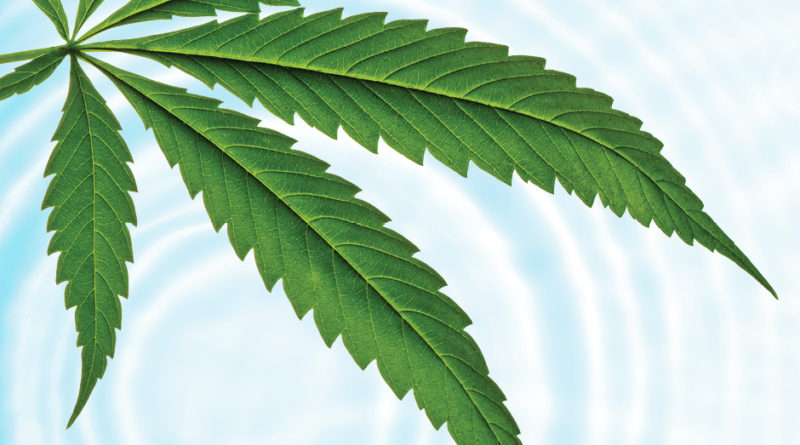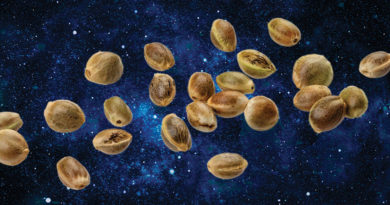4 Types of Acid for Cannabis
In addition to the basics such as temperature, lighting, and humidity, additives and nutrients are crucial to encourage maximum growth and yield. The cannabis plant requires many nutrients to support its leaves and heavy resinous buds. They do not require them all in identical amounts, but they do need every one of them in some quantity. If just one is absent, then the plants’ growth and development could be affected.
Whilst the best tool in your box is learning to “read” your plant so that you instinctively know what it needs and when. Knowing what role each nutrient and vitamin plays is a close second. Much is written about the Big 3 NPK nutrients, but less is heard about the importance of other aspects of nutrition, such as beneficial natural acids. These compounds are created within the plant itself but can also be administered in extra amounts to strengthen and improve your final yields.
Abscisic Acid (ABA)
Abscisic acid is a hormone naturally present in all plants. It is involved in many plant processes and responses to environmental stress, including seed and bud dormancy, organ-size control, and stomatal closure. It is essential for plants in response to drought, soil salinity, cold tolerance, freezing tolerance, heat stress, and heavy metal ion tolerance.
Abscisic acid is produced in terminal buds located at the tip of the stems. The presence of ABA slows plant growth and instructs leaf cells to develop scales to protect dormant buds through the winter. It also stops the division of cells in freezing conditions by suspending any further growth.
Abscisic acid is also produced in the roots in response to drought or dry soil spells and other situations where the plant may be under stress. The ABA moves to the leaves in this scenario, making the stomatal guard cells shrink and the stomata close. This closure reduces transpiration levels, preventing unnecessary water loss during dry spells.
ABA or an inexpensive synthetic chemical version of the same is contained in many store-bought fertilizers. Spraying ABA on plants improves their stress tolerance and water management. It can be applied to the plant via the root or by spraying the vegetative mass. For water-use efficiency, you should apply to the root tissue.
As a cannabis additive Abscisic acid helps plants to resist drought and abnormal conditions. It can also improve the productivity, strength, and performance of your plants.
 Additives and nutrients are crucial to encourage maximum growth and yield.
Additives and nutrients are crucial to encourage maximum growth and yield.
Ascorbic Acid/Vitamin C
In 2007, scientists from the University of Exeter and Shimane University in Japan proved that vitamin C is essential for plant growth. The study describes an enzyme that produces vitamin C in plants. Vitamin C was already known as an antioxidant, helping plants to deal with stresses including drought, ozone, and UV radiation, but until this point, it was not known that plants could not grow without it.
Plants need vitamin C because it increases their ability to cope with the stress associated with UV rays and scorching and dry conditions. Vitamin C protects plants from the adverse side effects of light during the process of photosynthesis. This is especially important to your cannabis plants if you are growing indoors, as they will be exposed to very intense light and heat conditions.
Vitamin C also acts as an antioxidant, protecting the plant against ozone. Sunshine, oxygen, and pollutants produce ozone. Ozone can then penetrate the plant’s leaves and break down into molecules that harm the plant unless an antioxidant counteracts it.
Additionally, vitamin C helps preserve nitrates in plant tissues. Nitrates are a combination of nitrogen and oxygen, which plants need to grow well.
Unlike humans and animals, plants can make their own vitamin C, however, if you feel like they could do with a boost, there are lots of products on the market that can do this. As a cannabis additive, Ascorbic acid builds tighter, heavier buds and works as an antioxidant. Vitamin C is often blended with sugars, fructose, or molasses and applied during the last few weeks of growth as a finishing product to increase weight and flavor.
 Salicylic acid can help enhance flowering.
Salicylic acid can help enhance flowering.
Salicylic Acid
Salicylic acid is a plant hormone with roles in plant growth and development processes such as photosynthesis, transpiration, and ion uptake and transport. Salicylic acid is involved in endogenous signaling, a signaling system originating from within a tissue or cell of the plant that mediates the plant’s defense against pathogens. It helps resist pathogens by inducing the production of proteins and other defensive metabolites.
Salicylic acid can assist plant development by enhancing seed germination, flowering, and fruit ripening, though too high of a concentration can have the opposite effect.
Using salicylic acid as a cannabis additive will help to speed up the natural systemic-acquired resistance (SAR) within your plants. This is a defense that supplies long-lasting protection against a broad spectrum of microorganisms, reducing the need for pesticide application. Salicylic acid can be used as a spray, a soak, or added to compost and rooting hormones.
Read also:
B-9 Folic Acid
Also called vitamin B9, can be found naturally in some plants in high levels, especially dark green leafy vegetables. Folic acid assists the plant in producing DNA, a nucleic acid that contains all of an organism’s genetic code. It also helps plants produce RNA, a nucleic acid that transports information from DNA to plant cell structures and allows plants to synthesize protein for varying enzymatic, functional, and structural roles. Proteins also provide storage for sugars and nutrients.
Folic acid works to help the plant’s metabolic functions enabling the metabolism of carbohydrates, proteins, and fats. Simply put, folic acid helps your plants grow more heavily and healthily.
Folic acid decomposes rapidly when plants are exposed to intense light, so giving indoor-grown cannabis plants additional Folic acid is a good idea. Folic acid can result in bushier, heavier plants and can be applied via watering with your regular feed or by spraying.
Cannabis requires more fertilization than most other crops, so you must get it right. Whatever additives you use to get these vital acids and other nutrients into your plants, make sure they are suitable to your environment.
A good nutrition base is always the key to good results, so get yourself educated and give your plants the best you can.




